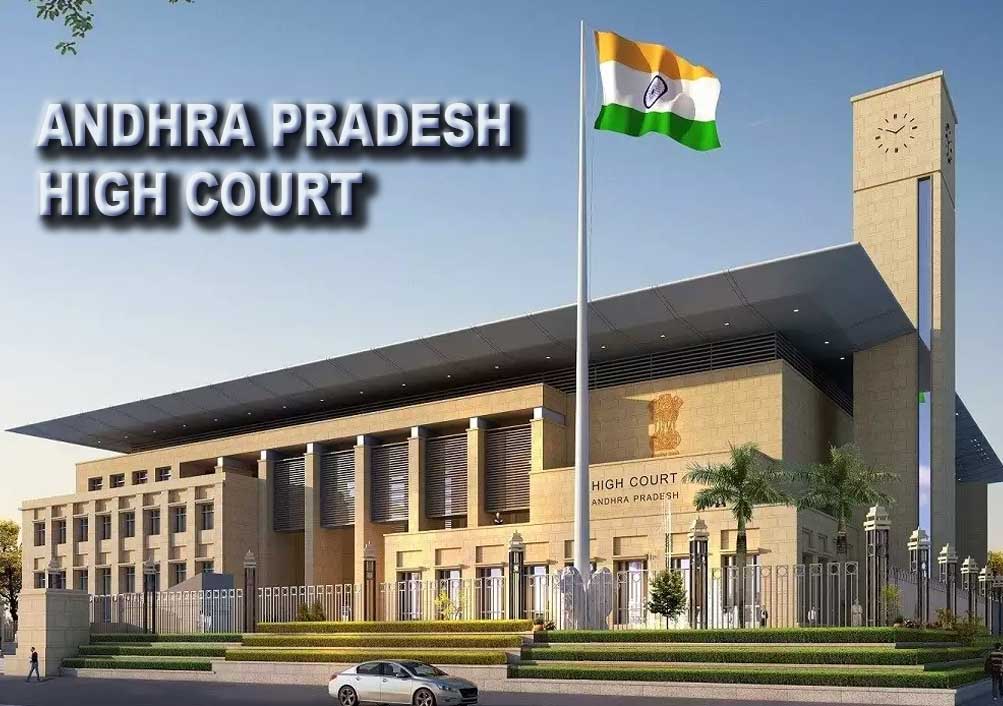In SECOND APPEAL No.504 of 2022-AP HC- While exercising jurisdiction u/s 100 CPC, Court must confine to substantial question of law; HC will not interfere unless appellant establishes that Courts below misread evidence & misconstrued documents: Andhra Pradesh HC
Justice Subba Reddy Satti [30-12-2022]

Read Order: BOEI RAMA DEVI V. SUGGU AMMAJI @ SUGGU AMMOJAMMA
Mansimran Kaur
Amaravati, January 2, 2023: The Andhra Pradesh High Court has opined that the Court cannot substitute its own opinion unless the findings of the Court below are manifestly perverse and contrary to the evidence on record.
A Single-Judge Bench of Justice Subba Reddy Satti dismissed the second appeal as the appellant failed to satisfy this Court about substantial questions of law involved in the case.
In the plaint, it was contended that plaintiff was the absolute owner of the land situated at Madhurawada village having purchased the same under a registered sale deed that vendor of plaintiff got the property under a registered sale deed from one R.Prabhakar Rao, GPA Holder and the plaintiff constructed two shop rooms within the schedule property in the year 2003.
The plaintiff filed a petition and the counsel for the defendant issued a reply with false allegations. In October, 2005 the defendant illegally demolished the structures i.e. two shop rooms; that plaintiff filed a complaint before Bheemunipatnam police, who in turn admonished the defendant for his illegal and high handed act.
Bheemunipatnam police issued the letter to the MRO for identification of property and its boundaries in order to settle the dispute. While the matter was pending before the MRO, defendant high handedly tried to construct a compound wall and the same was resisted and hence, filed the suit for perpetual injunction.
The Trial Court by judgment and decree dismissed the same. Aggrieved by the same, plaintiff filed the appeal and the Lower appellate Court on appreciation of both oral and documentary evidence, dismissed the appeal. Aggrieved by the same, the above second appeal was filed.
After considering the submissions, the Court noted that a perusal of the evidence on record would manifest that the plaintiff on the date of filing of the suit failed to prove possession over the schedule property.
As per the Bench, the Plaintiff cannot depend/rely upon the weakness on the part of the defendant. The deposition of first defence witness that after galata, plaintiff forcibly evicted them, pending the suit, and occupied the schedule property and leased out the same will not improve the case of plaintiff.
“It is also settled law that the plaintiff has to rely on the strength of her own case, but not on the weakness/latches on the part of the defendant”, the Court noted.
When there is a serious dispute or cloud over title, the plaintiff instead of filing suit for declaration of title filed the suit for permanent injunction. In fact, the letter addressed by Bheemunipatnam police to the MRO makes it clear that there is serious dispute regarding title over the schedule property, the Court added.
Reference was made to the case of Anathula Sudhakar Vs. P.Buchi Reddy (Dead) by LRs. and Ors. In view of expressions, a suit filed for perpetual injunction by plaintiff, when there is cloud over title, is not maintainable, the Court noted.
The relief of injunction is discretionary and equitable. In a given set of facts, injunction may be granted to protect the possession of owner or a person in lawful possession. A party seeking discretionary relief has to approach the Court with clean hands and is supposed to disclose the facts, which in one way or another effect the decision. A person seeking the relief of injunction is required to be honest and disclose the statement of facts, otherwise it would amount to abuse of process of Court.
“This Court, while exercising jurisdiction under Section 100 of CPC must confine itself to the substantial question of law involved in the appeal. This Court cannot re-appreciate the evidence and interfere with the concurrent findings of the Court below where the Courts below have exercised the discretion judicially. Further the existence of substantial questions of law is the sine qua non for the exercise of jurisdiction”, the Court further noted.
The Bench observed that the Court cannot substitute its own opinion unless the findings of the Court are manifestly perverse and contrary to the evidence on record. Moreover, unless the appellant establishes that the Courts below mis-read the evidence and misconstrued the documents, the High Court normally will not interfere with the findings of fact recorded by the Courts below.
The concurrent findings of the Courts below were based on appreciation of both oral and documentary evidence. The appellant failed to satisfy this Court about substantial questions of law involved in this case. No question of law, much less substantial question of law involved in this second appeal warranting interference of this Court under Section 100 of CPC was made, the Bench stated while dismissing the second appeal.
Sign up for our weekly newsletter to stay up to date on our product, events featured blog, special offer and all of the exciting things that take place here at Legitquest.




Add a Comment